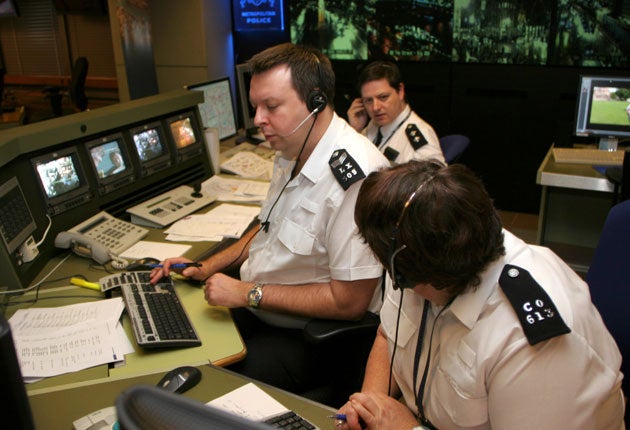Police keep records on the innocent

Personal information given to the police by millions of innocent people who report crime every year is being secretly stored on databases beside information on criminals and suspects.
The data is held by police forces across England and Wales which have amassed information about people who dial 999 or non-emergency numbers to report their concerns or pass on information.
Civil rights groups warn that retention of personal data long after criminal investigations have been closed risked the misuse of the information in future unconected cases.
West Midlands Police, the second largest force, holds 1.1 million records of people who have reported offences during the past 12 years. Others, including Lancashire, Cleveland, Avon and Somerset, Gloucestershire, West Mercia and North Wales, hold more than 150,000 each.
Senior officers admitted the information could be used against people as part of any future police investigation. They insisted gathering the data was necessary to fight crime, protect the vulnerable and ensure concerns were dealt with properly.
Evidence of the police databases was collected in a series of requests by the Press Association under the Freedom of Information Act. A total of 13 forces responded with details revealing how they held between 10,091 records (Lincolnshire) and 1,147,413 (West Midlands).
Those with the biggest databases were Lancashire (600,000), North Wales (302,754), Cleveland (172,369) and Avon and Somerset (162,968). The majority of forces said it was not possible to collect the information because the scale of the task was too big.
In some cases, police staff not only record names, addresses and contact details, but ask about the callers' date of birth and ethnicity.
Gus Hosein of Privacy International said: "There's a point where the police stop seeing members of the public as the people to be protected and rather see them all as potential criminals. Until now, this only happened in non-democratic states, but I fear that this line has been crossed in ours."
Daniel Hamilton of Big Brother Watch said: "For the police to log this kind of information isn't just wrong, it's dangerous.
"The public must be confident that, when they report a crime, they do so in the comfort of anonymity and without risk of their details being stored on a central police database which can be accessed by thousands of people. This information must be deleted before public confidence in the police takes yet another hit."
Ian Readhead, the director of information at the Association of Chief Police Officers (Acpo), said forces should only record information relevant to the call. The retired Hampshire deputy chief constable admitted an "amicable exchange of information" could be used against callers in the future but said most people would expect police to hold on to it.
Join our commenting forum
Join thought-provoking conversations, follow other Independent readers and see their replies
Comments
Bookmark popover
Removed from bookmarks